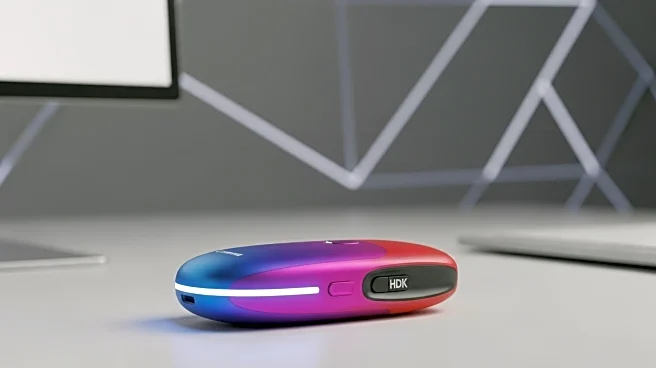What's Happening?
Pocketalk, a translation services company, has developed a two-way Haitian Creole model that translates the language in both text and voice. This initiative addresses the challenges faced by public agencies in the U.S. that need to serve residents speaking less-common languages. The development of this language model required collaboration with Kerby Magophy, a Haitian Creole language expert, who contributed by recording his voice to teach the model pronunciation, grammar, and sentence structure. The project took over six months to complete, emphasizing quality over speed. Pocketalk's original product is a handheld device that provides real-time translation for many languages, and the company plans to expand its offerings beyond pocket-sized devices.
Why It's Important?
The development of AI translation for Haitian Creole is significant as it enhances communication and accessibility for Haitian Creole speakers in the U.S., particularly in critical situations such as healthcare. This technology can bridge gaps between communities and improve relationships by facilitating better understanding across different cultures and languages. The initiative also highlights the importance of human expertise in developing AI models, ensuring high-quality translation services. As Pocketalk expands its language offerings, it can potentially serve more diverse communities, reducing language barriers and fostering inclusivity.
What's Next?
Pocketalk plans to continue expanding its language translation capabilities, learning from the development of the Haitian Creole model to apply similar techniques to other languages. The company is also adapting its software to be used on other platforms, aiming to provide enterprise solutions that offer security and accountability. This expansion could lead to broader adoption of AI translation services across various sectors, including healthcare, education, and government, further enhancing communication and accessibility for non-English speakers.
Beyond the Headlines
The collaboration between human experts and AI technology in language translation raises ethical considerations about the role of human translators and the potential for AI to replace them. However, experts like Kerby Magophy emphasize that AI cannot fully replace human translators, especially in critical situations. The development of AI-supported translation services also has cultural implications, as it can help mend historical gaps and foster better relationships between communities by improving mutual understanding.











